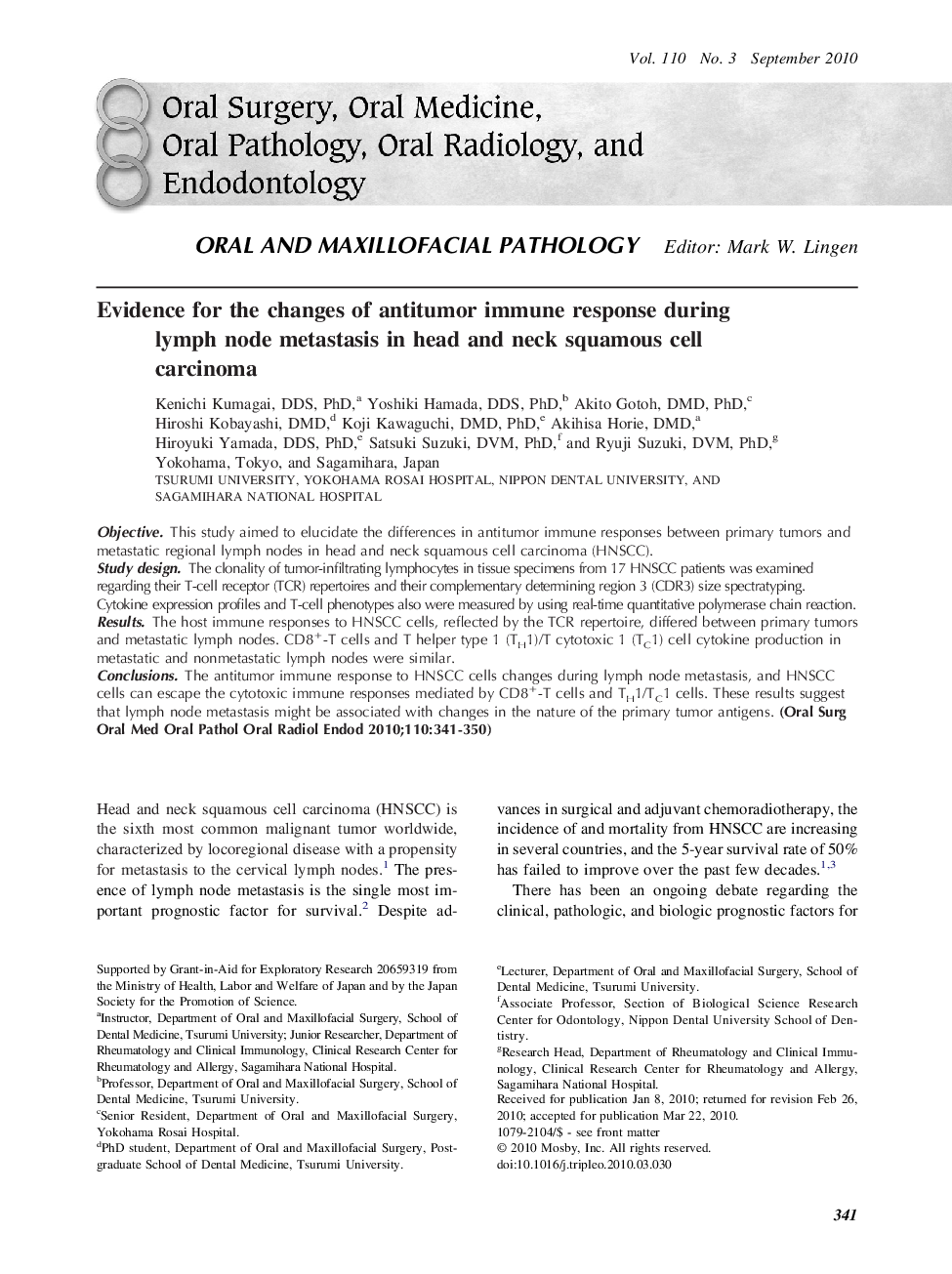| Article ID | Journal | Published Year | Pages | File Type |
|---|---|---|---|---|
| 3167421 | Oral Surgery, Oral Medicine, Oral Pathology, Oral Radiology, and Endodontology | 2010 | 10 Pages |
ObjectiveThis study aimed to elucidate the differences in antitumor immune responses between primary tumors and metastatic regional lymph nodes in head and neck squamous cell carcinoma (HNSCC).Study designThe clonality of tumor-infiltrating lymphocytes in tissue specimens from 17 HNSCC patients was examined regarding their T-cell receptor (TCR) repertoires and their complementary determining region 3 (CDR3) size spectratyping. Cytokine expression profiles and T-cell phenotypes also were measured by using real-time quantitative polymerase chain reaction.ResultsThe host immune responses to HNSCC cells, reflected by the TCR repertoire, differed between primary tumors and metastatic lymph nodes. CD8+-T cells and T helper type 1 (TH1)/T cytotoxic 1 (TC1) cell cytokine production in metastatic and nonmetastatic lymph nodes were similar.ConclusionsThe antitumor immune response to HNSCC cells changes during lymph node metastasis, and HNSCC cells can escape the cytotoxic immune responses mediated by CD8+-T cells and TH1/TC1 cells. These results suggest that lymph node metastasis might be associated with changes in the nature of the primary tumor antigens.
